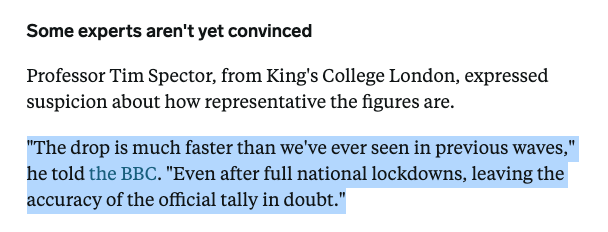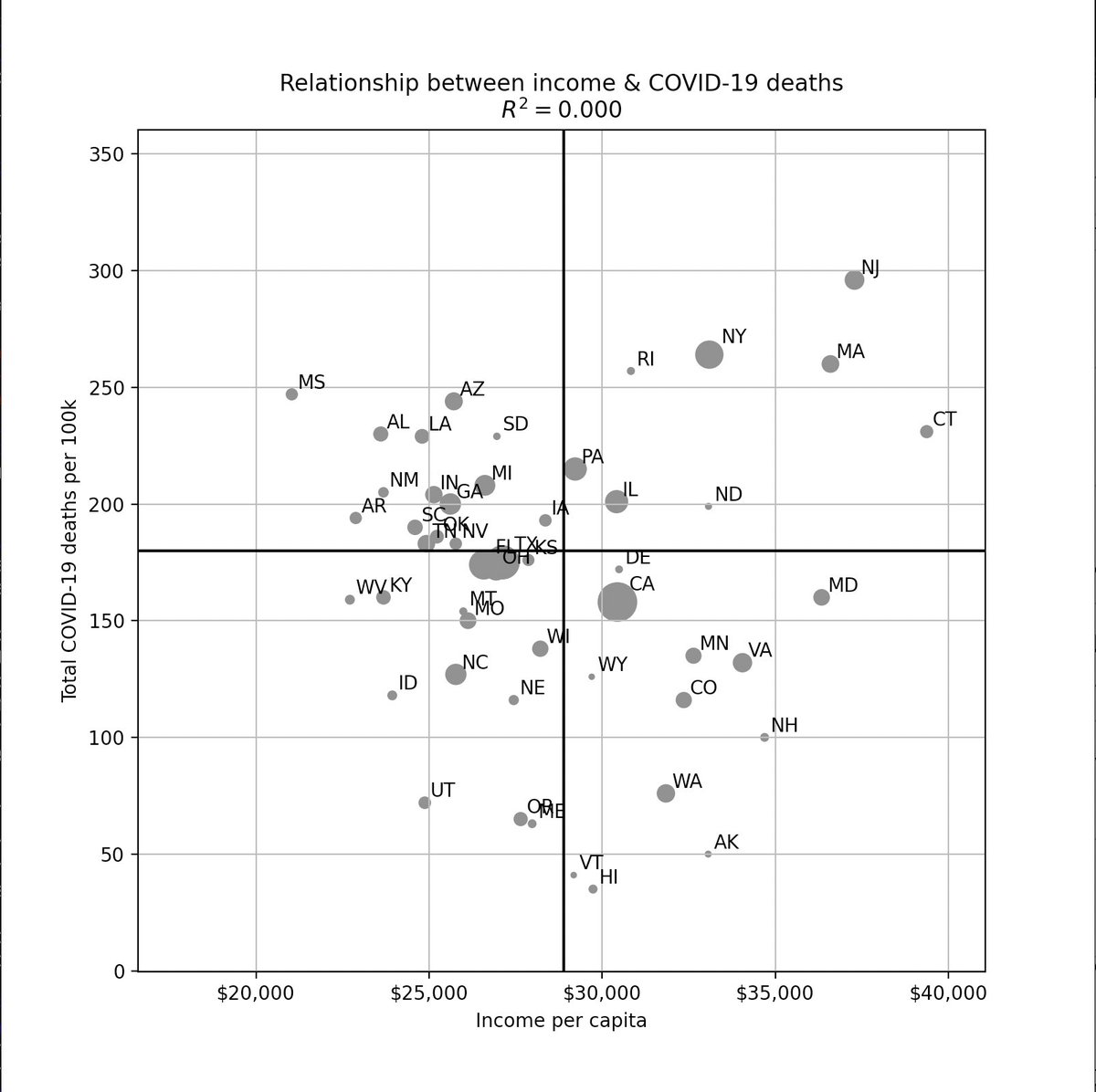If you're under 50, your odds of dying if you contract COVID-19 is ~0.013% or 1 in 8000. This is similar to the odds of dying in a car accident in a year.
BUT many infected people will go on to infect others. In this thread I'll explain why we cannot treat the two risks equally.
BUT many infected people will go on to infect others. In this thread I'll explain why we cannot treat the two risks equally.
The current Rt for the SARS-CoV-2 virus in the US is ~1. This means that an infected person will infect, on average, 1 other person. That person will infect another, and so on.
After 3 months, ~20 people will have been infected that can be indirectly attributed to the 1st case.
After 3 months, ~20 people will have been infected that can be indirectly attributed to the 1st case.
If Rt increases to 1.2, then 130 people will have been infected after 3 months. All stemming from 1 infection.
The chance that at least 1 person among the 130 will die is non-trivial (~50%).
That's why we need to view COVID-19 as a *community risk*, not an *individual risk*.
The chance that at least 1 person among the 130 will die is non-trivial (~50%).
That's why we need to view COVID-19 as a *community risk*, not an *individual risk*.
If you are young and healthy, then yes, you will most likely not die if you contract COVID-19. If you transmit it to someone else, chances are they will survive too.
But what about the next person? Or the one after that? They may not be as young as you.
But what about the next person? Or the one after that? They may not be as young as you.
https://twitter.com/youyanggu/status/1311384263217078274
So I hope we can all agree that we can do a better job of protecting ourselves and others.
If simple actions such as wearing a mask can reduce even a single infection, that can stop a whole chain of transmission. There is widespread scientific consensus:
cdc.gov/coronavirus/20…
If simple actions such as wearing a mask can reduce even a single infection, that can stop a whole chain of transmission. There is widespread scientific consensus:
cdc.gov/coronavirus/20…
While I used average Rt for this simple example, in reality, a minority of infected individuals are responsible for the majority of transmissions.
This is a phenomenon called overdispersion, as @zeynep explains this in her recent Atlantic piece: theatlantic.com/health/archive…
This is a phenomenon called overdispersion, as @zeynep explains this in her recent Atlantic piece: theatlantic.com/health/archive…
Due to this superspreading nature of the virus, effective contact tracing is key to mitigating the spread by tracking down superspreader events and notifying the exposed contacts in a timely manner.
Targeted testing and fast turnarounds are crucial.
Targeted testing and fast turnarounds are crucial.
https://twitter.com/kj_seung/status/1311443943872180224
So to conclude, we should not be thinking about Covid risks from an individual perspective, but rather from a community perspective. Our actions directly and indirectly affect those around us.
If I was able to change just one person's view with this thread, then it was worth it.
If I was able to change just one person's view with this thread, then it was worth it.
UPDATE: I find it interesting that my most controversial Tweet was "we can all do better to protect ourselves and others, such as wearing masks."
A common response? "But lockdown kills."
The two are not remotely related and it has shown how polarized our beliefs have become.
A common response? "But lockdown kills."
The two are not remotely related and it has shown how polarized our beliefs have become.
• • •
Missing some Tweet in this thread? You can try to
force a refresh
















